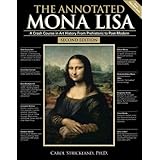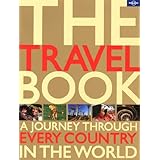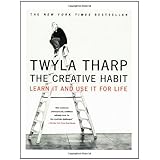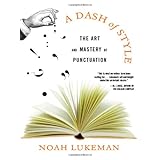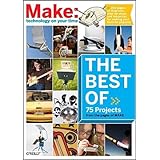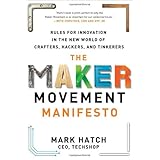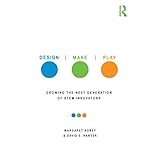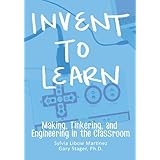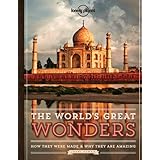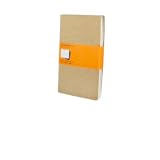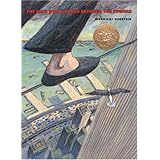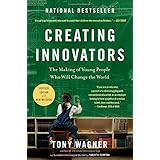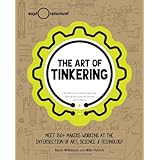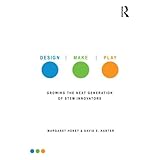Lucy is one of those kids who loves school. Loves it. Not the social part of school, mind you. She eats lunch alone, makes few friends, and could care less that this is the case. She loves the academic part of school. Loves, loves, loves it. (Though it also gives her stomach aches and completely stresses her out.)
Just yesterday she told me the thing she misses most about being in regular school, besides getting grades, is preparing presentations (not giving them, preparing them). Who actually likes preparing presentations?
My daughter.
So homeschooling her is pretty easy. She does what I ask her to do with gusto, secretly worried if she does not do it with gusto, she will grow stupid.
This could be the end of the story.
But it's not.
I'm struggling with Lucy because I want her to break free of the idea of grades being the best thing about school. I want her learning to be the best thing about school. I want her CREATING to be the best thing about school.
Every day the four youngest kids have an hour of tinkering time, where they are supposed to try new things, new skills, or make new inventions. It is literally about tinkering. Shaemus and Calvin LOVE this time. It's their favorite.
Lucy, not so much. She just asked me the other day if she could do extra writing and extra Spanish during tinkering time. Not really thinking about it, I said sure.
But I've been thinking about it. I think Lucy needs tinkering time.
I think Lucy needs tinkering so she can learn how to fail.
I'm going to do some experiments with this. We've created such a right/wrong world (there is one correct answer and you'll find it in the back of the book!) in the public schools and in our society. Lucy is perfectly happy to exist in that world as long as she is on the "right" side of the fence. Being on the "wrong" side sends her into panic. (I'm not talking about morals, by the way.)
I need to create a world for Lucy where there are few right answers and few wrong answers—there is just effort and thought and inspiration and perseverance. I need to create a world for her where there is no "growing stupid."
Otherwise, when she grows up, she will be afraid of doing anything that might cross that stupid line, and her life will be very small indeed.
"Reading is the work of the alert mind, is demanding, and under ideal conditions produces finally a sort of ecstasy." -- E. B. White
Showing posts with label homeschooling. Show all posts
Showing posts with label homeschooling. Show all posts
Thursday, November 13, 2014
Tuesday, October 7, 2014
How We Do Homeschooling (right now) Part Two
Flannery
Age: 6
Temperament: Cheerful (unless she doesn't get what she wants—then hound dog is the best way to describe her)
Struggles that make homeschooling tricky: Can be lazy. Prone to fibbing. Doesn't like to do hard things.
Passions: art, writing
I was worried about homeschooling Flannery. I've always had a rule since I attempted this back in 2008 that I would never homeschool a child until they were completely self-sufficient, particularly with reading.
But you try telling your six-year-old that everyone else gets to be homeschooled while you have to go to school by yourself. She liked Kindergarten most of the time, but her teacher was not super tuned into her (or any of the kids), and there were times last year when she asked why she couldn't be homeschooled like Mary and Shaemus.
I will admit something right now. There was a lot of meaningless threatening going on the first few weeks of homeschool. I probably said, "If you don't do (fill in the blank), you will go back to school tomorrow," five thousand times.
I didn't really mean it, but I said it, and it did no good, but patiently training Flannery has done some good. She is very, very independent. I just have to make sure she's actually done what she says she's done.
This is Flannery's schedule:
Cello practice from 8-9
Math with Teaching Textbooks from 9-10
Reading from 10-11
Workbooks (see below) and writing 11-12
Art (drawing, sculpting, painting)/P.E./Piano/Building/Science and basically anything else she's interested in doing the rest of the day.
Official school isn't that long for Flannery, but because it is really long for everyone else, she ends up doing extra work without knowing it's happening. We have a bazillion books for her to explore here and we go to the library every week. I'm finding her curled up alone with a book, her lips moving silently, more and more often. Her reading gets better every single day, and she's doing surprisingly well with math.
She likes to save everything she makes and everything everyone else makes, and she never wants to clean up after herself. She makes my house a wreck. This is a MAJOR problem I have patience with about one time out of ten, but...
I am loving homeschooling her. I told a friend just yesterday that everything around our house seems to get happier and happier as each day passes.
My kids are being creative, and they are being creative all day long.
Yesterday, Flannery made a crazy elephant out of playdough. It doesn't sound like much, but she spent a long time on this elephant, and it was the best playdough sculpture I've ever seen. She's been designing her own board game complete with complicated instructions, math, warnings, and fabulous pictures. She made a 3D map of the world the other day out of model magic—all done completely on her own, and it was really, really good! (I'd post pictures if I had a phone that took pictures, but I do not. Maybe one day.) She has been teaching herself the piano, and she really is doing it! She works in the yard with me and makes discoveries every few seconds (Mom, what's a grub good for? Why does that squirrel have an ouchy on its back? What would hurt it? How is this growing here? Why do weeds keep coming?). Her stories are fabulous—about things like jellyfish that eat vegetables for a job.
All of this comes from within her. It seems to me that creativity is something that bubbles and froths and grows and grows when given the best ingredients. It is limitless. It never diminishes under the right conditions. And the confidence kids get when they create something interesting from start to finish after much trial and effort is indescribable.
If you gauged learning on engagement (meaning both mind and heart are completely occupied in a task), Flannery is learning at home every single second of homeschool (with the possible exception of the two workbooks I have her work in every day...). Not a minute of her time is wasted, and man, that makes her one happy kid.
Age: 6
Temperament: Cheerful (unless she doesn't get what she wants—then hound dog is the best way to describe her)
Struggles that make homeschooling tricky: Can be lazy. Prone to fibbing. Doesn't like to do hard things.
Passions: art, writing
I was worried about homeschooling Flannery. I've always had a rule since I attempted this back in 2008 that I would never homeschool a child until they were completely self-sufficient, particularly with reading.
But you try telling your six-year-old that everyone else gets to be homeschooled while you have to go to school by yourself. She liked Kindergarten most of the time, but her teacher was not super tuned into her (or any of the kids), and there were times last year when she asked why she couldn't be homeschooled like Mary and Shaemus.
I will admit something right now. There was a lot of meaningless threatening going on the first few weeks of homeschool. I probably said, "If you don't do (fill in the blank), you will go back to school tomorrow," five thousand times.
I didn't really mean it, but I said it, and it did no good, but patiently training Flannery has done some good. She is very, very independent. I just have to make sure she's actually done what she says she's done.
This is Flannery's schedule:
Cello practice from 8-9
Math with Teaching Textbooks from 9-10
Reading from 10-11
Workbooks (see below) and writing 11-12
Art (drawing, sculpting, painting)/P.E./Piano/Building/Science and basically anything else she's interested in doing the rest of the day.
Official school isn't that long for Flannery, but because it is really long for everyone else, she ends up doing extra work without knowing it's happening. We have a bazillion books for her to explore here and we go to the library every week. I'm finding her curled up alone with a book, her lips moving silently, more and more often. Her reading gets better every single day, and she's doing surprisingly well with math.
She likes to save everything she makes and everything everyone else makes, and she never wants to clean up after herself. She makes my house a wreck. This is a MAJOR problem I have patience with about one time out of ten, but...
I am loving homeschooling her. I told a friend just yesterday that everything around our house seems to get happier and happier as each day passes.
My kids are being creative, and they are being creative all day long.
Yesterday, Flannery made a crazy elephant out of playdough. It doesn't sound like much, but she spent a long time on this elephant, and it was the best playdough sculpture I've ever seen. She's been designing her own board game complete with complicated instructions, math, warnings, and fabulous pictures. She made a 3D map of the world the other day out of model magic—all done completely on her own, and it was really, really good! (I'd post pictures if I had a phone that took pictures, but I do not. Maybe one day.) She has been teaching herself the piano, and she really is doing it! She works in the yard with me and makes discoveries every few seconds (Mom, what's a grub good for? Why does that squirrel have an ouchy on its back? What would hurt it? How is this growing here? Why do weeds keep coming?). Her stories are fabulous—about things like jellyfish that eat vegetables for a job.
All of this comes from within her. It seems to me that creativity is something that bubbles and froths and grows and grows when given the best ingredients. It is limitless. It never diminishes under the right conditions. And the confidence kids get when they create something interesting from start to finish after much trial and effort is indescribable.
If you gauged learning on engagement (meaning both mind and heart are completely occupied in a task), Flannery is learning at home every single second of homeschool (with the possible exception of the two workbooks I have her work in every day...). Not a minute of her time is wasted, and man, that makes her one happy kid.
Tuesday, September 30, 2014
How We Do Homeschooling (right now) Part One
MARY
Age: 14 (scary!)
Temperament: Good. Pleasant.
Struggles that might make homeschooling tricky: Prone to despair. Time management. Organization.
Passions: Music
This is Mary's ninth grade year, so these are the things we decided she should study:
Geometry
Anatomy
Music History along with some art history
Music Theory
Alexander Technique (a truly awesome thing)
Literature
Shakespeare
Writing
Cultural Geography
Music
German
Boy, that sounds awesome doesn't it? I should just leave it alone at that. Superhero homeschool Mom of the universe!!!
In truth, this is Mary's day:
Practice viola—four to five hours
Math—one hour
Reading/Literature—at least one hour (She's currently loving THE COUNT OF MONTE CRISTO)
All her other subjects, she squeezes in whenever she can around math, practicing, and her bazillions of music rehearsals. She probably spends three to four hours per week on each subject. Other than German (which she takes through BYU's Independent Study Program) and her math, she doesn't have tests. I don't require assignments other than some writing. She studies her books, takes notes—the end.
So how do I know she's studying and learning?
Tough to say. I don't 100% know anything. I examine her notebooks regularly, and they are chock full of great stuff. She's allowed to write in her textbooks, and there is a great deal of underlining being done. But is that enough to know?
I second guess myself constantly on this issue with all of the kids. Kids in the United States now spend an average of 30-40% of their time in school taking tests. Kids in Finland spend 3% or less of their time taking tests, and Finland rocks the rest of the world on every measurable test. I'm on the side of Finland!!! I remember so little of what I memorized in Junior High and High School and College. So very, very little. Memorization only takes you so far especially when we live in this age with such easy access to all sorts of information.
What I'm trying to worry about is her ability to express herself and her ability to think and her ability to learn on her own and, finally, her ability to take ownership for that learning.
She is studying anatomy because she wants to better understand how music affects the body and how a musician physically learns to play.
She is studying literature with my guidance, but selecting her own books.
She is studying Music History rather than plain old World History because it relates so deeply to her passions.
She is studying German because she wants to live in Germany or Austria one day with its deep tradition of music.
She talks about her learning regularly in casual conversation. Her writing is clear and well-organized. She needs to work on it, as we all do, but she's growing. I can see it.
Most importantly, she works enthusiastically and independently all day long. She decides when she does what. She keeps a record. She knows if she doesn't do what she needs to do, going to college is going to be tough. She knows what she is learning will impact her now and in the future—and not just because of college. She knows that time wasted is gone forever.
I am writing this down because it is tough to remember this. It is tough to remember that I know my daughter is learning and growing when people say things to you like, "They've got to go to school to face the tough knocks. How else will they be prepared for life?"
I have no answer for this but that I want her to learn a great deal more than just tough knocks.
Here are the texts Mary is using for her various subjects. There are pros and cons to them, but, for the most part, they are the best we could find, and we're satisfied. We do Teaching Textbooks for math and LOVE it. We also have a Shakespeare class she takes on Fridays and I teach a writing class to the same group (about eighteen teens). It gives her a chance to present, discuss things in groups, etc... She really loves that.

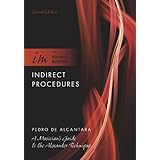
Age: 14 (scary!)
Temperament: Good. Pleasant.
Struggles that might make homeschooling tricky: Prone to despair. Time management. Organization.
Passions: Music
This is Mary's ninth grade year, so these are the things we decided she should study:
Geometry
Anatomy
Music History along with some art history
Music Theory
Alexander Technique (a truly awesome thing)
Literature
Shakespeare
Writing
Cultural Geography
Music
German
Boy, that sounds awesome doesn't it? I should just leave it alone at that. Superhero homeschool Mom of the universe!!!
In truth, this is Mary's day:
Practice viola—four to five hours
Math—one hour
Reading/Literature—at least one hour (She's currently loving THE COUNT OF MONTE CRISTO)
All her other subjects, she squeezes in whenever she can around math, practicing, and her bazillions of music rehearsals. She probably spends three to four hours per week on each subject. Other than German (which she takes through BYU's Independent Study Program) and her math, she doesn't have tests. I don't require assignments other than some writing. She studies her books, takes notes—the end.
So how do I know she's studying and learning?
Tough to say. I don't 100% know anything. I examine her notebooks regularly, and they are chock full of great stuff. She's allowed to write in her textbooks, and there is a great deal of underlining being done. But is that enough to know?
I second guess myself constantly on this issue with all of the kids. Kids in the United States now spend an average of 30-40% of their time in school taking tests. Kids in Finland spend 3% or less of their time taking tests, and Finland rocks the rest of the world on every measurable test. I'm on the side of Finland!!! I remember so little of what I memorized in Junior High and High School and College. So very, very little. Memorization only takes you so far especially when we live in this age with such easy access to all sorts of information.
What I'm trying to worry about is her ability to express herself and her ability to think and her ability to learn on her own and, finally, her ability to take ownership for that learning.
She is studying anatomy because she wants to better understand how music affects the body and how a musician physically learns to play.
She is studying literature with my guidance, but selecting her own books.
She is studying Music History rather than plain old World History because it relates so deeply to her passions.
She is studying German because she wants to live in Germany or Austria one day with its deep tradition of music.
She talks about her learning regularly in casual conversation. Her writing is clear and well-organized. She needs to work on it, as we all do, but she's growing. I can see it.
Most importantly, she works enthusiastically and independently all day long. She decides when she does what. She keeps a record. She knows if she doesn't do what she needs to do, going to college is going to be tough. She knows what she is learning will impact her now and in the future—and not just because of college. She knows that time wasted is gone forever.
I am writing this down because it is tough to remember this. It is tough to remember that I know my daughter is learning and growing when people say things to you like, "They've got to go to school to face the tough knocks. How else will they be prepared for life?"
I have no answer for this but that I want her to learn a great deal more than just tough knocks.
Here are the texts Mary is using for her various subjects. There are pros and cons to them, but, for the most part, they are the best we could find, and we're satisfied. We do Teaching Textbooks for math and LOVE it. We also have a Shakespeare class she takes on Fridays and I teach a writing class to the same group (about eighteen teens). It gives her a chance to present, discuss things in groups, etc... She really loves that.


Thursday, September 25, 2014
The Five Paragraph Essay
If you google: Should we dump the five paragraph essay? you will see mostly a list of articles saying that yes, we should. You will see a few defending it. You find a lot of articles where college professors bemoan this essay form taught in so many high schools, claiming they have to teach their students all over again how to write.
I am on the dump-it side of the equation. Lots of people have different reasons for this, but I have one and only one reason:
Who wants to read an essay where the writer first explains what they are about to say, then explains it, then says the exact same thing in a conclusion?
Nobody.
Why?
They are boring.
Longform.com puts together what they think are the ten best news articles from 2013. For my writing class, I took the first paragraphs from five of those articles and put them in one document. Each one looked something like this:
Not only that, but this paragraph throws us right into action. There is no history given here, no recounting of events so we know where we stand. This paragraph starts right with Mark Barden going down into the basement to find a photo. Every one of the ten articles begins with action. They also begin with a question or questions. From this paragraph, I want to know if Mark Barden found that picture. If it made a difference. I want to know who he made that promise to. I want to know which politicians listened and which politicians did not. I want to know more about Mark Borden. There are a lot of things this paragraph makes me want to know, and that's why I keep reading.
The five paragraph essay does not lend itself easily to questions. It is difficult to provide mystery in such a confining form.
I think the five paragraph essay is taught to give students a rudimentary structure to follow. I think it's taught to keep them focused. I think it's taught because it is easy to grade.
Rubric: Thesis statement? 4. Supporting paragraphs? 3. Conclusion? 2. Grade: 3.
Why do we teach forms of writing that don't mirror anything we do in the real world? Why do we teach forms of writing that will—without question—bore these students to death so that they hate to write?
Too many kids hate to write, and it is the fault of the people teaching them what writing is about.
This, by the way, was my students favorite of the five paragraphs:
I am on the dump-it side of the equation. Lots of people have different reasons for this, but I have one and only one reason:
Who wants to read an essay where the writer first explains what they are about to say, then explains it, then says the exact same thing in a conclusion?
Nobody.
Why?
They are boring.
Longform.com puts together what they think are the ten best news articles from 2013. For my writing class, I took the first paragraphs from five of those articles and put them in one document. Each one looked something like this:
They had promised to try everything, so Mark Barden went down into the basement to begin another project in memory of Daniel. The families of Sandy Hook Elementary were collaborating on a Mother’s Day card, which would be produced by a marketing firm and mailed to hundreds of politicians across the country. “A difference-maker,” the organizers had called it. Maybe if Mark could find the most arresting photo of his 7-year-old son, people would be compelled to act.
Where is the thesis statement in this article? Where is the clear explanation of everything that will follow? I think we can say from this paragraph that this article will be about gun control, but we don't know what it's going to say.Not only that, but this paragraph throws us right into action. There is no history given here, no recounting of events so we know where we stand. This paragraph starts right with Mark Barden going down into the basement to find a photo. Every one of the ten articles begins with action. They also begin with a question or questions. From this paragraph, I want to know if Mark Barden found that picture. If it made a difference. I want to know who he made that promise to. I want to know which politicians listened and which politicians did not. I want to know more about Mark Borden. There are a lot of things this paragraph makes me want to know, and that's why I keep reading.
The five paragraph essay does not lend itself easily to questions. It is difficult to provide mystery in such a confining form.
I think the five paragraph essay is taught to give students a rudimentary structure to follow. I think it's taught to keep them focused. I think it's taught because it is easy to grade.
Rubric: Thesis statement? 4. Supporting paragraphs? 3. Conclusion? 2. Grade: 3.
Why do we teach forms of writing that don't mirror anything we do in the real world? Why do we teach forms of writing that will—without question—bore these students to death so that they hate to write?
Too many kids hate to write, and it is the fault of the people teaching them what writing is about.
This, by the way, was my students favorite of the five paragraphs:
Remember that crazy story about the dude in Mississippi who mailed ricin to Obama and then tried to frame some other dude in Mississippi for the crime? Well, as Wells Tower discovered when he traveled to Tupelo and started poking around, the story is a thousand times crazier than you thought.
No thesis statement here, but there sure are a lot of questions...
Tuesday, September 23, 2014
Falcon Fever—Can any kid love falconry?
This is a bit of a strange post. It's a lot about schooling and it's also about a book I haven't read. It's also about my quest to help my kids figure out the things that they love.
Calvin loves facts. He loves facts about everything. If there was a job where you could memorize facts and quiz people about them, Calvin would love that job.
It's not hard to find him a book he will like, but to find him a book he will love... that's a trickier thing.
All of my kids have to read some non-fiction and take notes/write about it every day. What they read is up to them as long as I approve it (mostly to check the complexity).
I have a lot of visions for my kids, and one vision I've occasionally had for Calvin is that he might be a falconer one day.
I know. That's weird. A falconer. Aren't there, like, three falconer jobs in the entire world? Why would I encourage this as an interest?
The answer is this: I don't know.
But in my desire to encourage falconry (???), I bought Calvin this:
Falcon Fever by Tim Gallagher.
This is not juvenile nonfiction, and as much as I wish I could say differently, I've never had success getting my kids to read most adult nonfiction. This book doesn't have pictures. Any. Zero. It's 336 pages long.
But this is one of the reviews of the book:
*Starred Review* Falconry, a sport most of us equate with medieval kings and Arabian potentates, is alive and well in the twenty-first century. Gallagher, author (The Grail Bird, 2005) and editor in chief of Cornell Laboratory of Ornithology’s journal Living Bird, brings this arcane sport to life in his memoir-cum-travelogue-cum-falconry-history. Although he was born in England, Gallagher’s family moved to Canada and finally California in his childhood. An abusive father drove the young boy to nature, and when he discovered the thirteenth-century book on falconry by Holy Roman Emperor Frederick II, he was hooked. In part 1 of the book, Gallagher recounts his boyhood, obsessed with hawks and falcons, running with a less-than-perfect crowd, getting arrested for selling marijuana, and spending time in jail. This formative period segues into part 2, when the author decided to spend a year following in Frederick II’s footsteps, both figuratively and literally. This engaging book draws readers in from page 1, and we want to learn more about Gallagher’s life, his quest for understanding the souls of falconers from Frederick II to himself, and the majesty of the hunting falcons. A gem.
The reviewer says: "This engaging book draws readers in from page 1."
It drew Calvin in, but I doubt it would draw many other kids in, because how many kids are going to love a book about falconry (actually maybe a lot would...). The point is, I had a hunch about a book Calvin would like despite its lack of flash and lack of pictures. He likes this book FOR THE TOPIC. He is interested in this subject, and he will, therefore, read difficult books about it. He's not finished with this beast, but he's already asking for more books on falconry.
I believe the same thing can happen for ALL CHILDREN on a lot of different subjects. If we as parents, teachers, the community as a whole, would recognize that we should help children find their particular interests, nurture them, help them grow, the children of this country would grow exponentially in their reading and writing abilities and other basic skills.
And they wouldn't even know it was happening because they'd be too focused on falconry to wonder if they're going to make benchmark this year.
Calvin loves facts. He loves facts about everything. If there was a job where you could memorize facts and quiz people about them, Calvin would love that job.
It's not hard to find him a book he will like, but to find him a book he will love... that's a trickier thing.
All of my kids have to read some non-fiction and take notes/write about it every day. What they read is up to them as long as I approve it (mostly to check the complexity).
I have a lot of visions for my kids, and one vision I've occasionally had for Calvin is that he might be a falconer one day.
I know. That's weird. A falconer. Aren't there, like, three falconer jobs in the entire world? Why would I encourage this as an interest?
The answer is this: I don't know.
But in my desire to encourage falconry (???), I bought Calvin this:
Falcon Fever by Tim Gallagher.
This is not juvenile nonfiction, and as much as I wish I could say differently, I've never had success getting my kids to read most adult nonfiction. This book doesn't have pictures. Any. Zero. It's 336 pages long.
But this is one of the reviews of the book:
*Starred Review* Falconry, a sport most of us equate with medieval kings and Arabian potentates, is alive and well in the twenty-first century. Gallagher, author (The Grail Bird, 2005) and editor in chief of Cornell Laboratory of Ornithology’s journal Living Bird, brings this arcane sport to life in his memoir-cum-travelogue-cum-falconry-history. Although he was born in England, Gallagher’s family moved to Canada and finally California in his childhood. An abusive father drove the young boy to nature, and when he discovered the thirteenth-century book on falconry by Holy Roman Emperor Frederick II, he was hooked. In part 1 of the book, Gallagher recounts his boyhood, obsessed with hawks and falcons, running with a less-than-perfect crowd, getting arrested for selling marijuana, and spending time in jail. This formative period segues into part 2, when the author decided to spend a year following in Frederick II’s footsteps, both figuratively and literally. This engaging book draws readers in from page 1, and we want to learn more about Gallagher’s life, his quest for understanding the souls of falconers from Frederick II to himself, and the majesty of the hunting falcons. A gem.
The reviewer says: "This engaging book draws readers in from page 1."
It drew Calvin in, but I doubt it would draw many other kids in, because how many kids are going to love a book about falconry (actually maybe a lot would...). The point is, I had a hunch about a book Calvin would like despite its lack of flash and lack of pictures. He likes this book FOR THE TOPIC. He is interested in this subject, and he will, therefore, read difficult books about it. He's not finished with this beast, but he's already asking for more books on falconry.
I believe the same thing can happen for ALL CHILDREN on a lot of different subjects. If we as parents, teachers, the community as a whole, would recognize that we should help children find their particular interests, nurture them, help them grow, the children of this country would grow exponentially in their reading and writing abilities and other basic skills.
And they wouldn't even know it was happening because they'd be too focused on falconry to wonder if they're going to make benchmark this year.
Labels:
Ages 12 and up.,
For kids of all ages,
homeschooling
Sunday, September 21, 2014
Interested in Classical Music but don't know where to start? Want to get your kids interested?
Here are some of our favorite youtube clips of awesome classical music performances:
Smetana, Quartet No.1 "From My Life" - 1. Allegro vivo appassionato
Nadja Salerno-Sonnenberg Plays Mendelssohn's Violin Concerto on the Tonight Show
Stjepan Hauser - Hungarian Rhapsody Op. 68 (LIVE)
D.Shostakovich-piano trio, op. 67 (1944)-finale. S.Richter,O.Kagan, N.Gutman.
Eileen Ivers, Nadja Salerno Sonnenberg, Regina Carter 2002
Smetana, Quartet No.1 "From My Life" - 1. Allegro vivo appassionato
Nadja Salerno-Sonnenberg Plays Mendelssohn's Violin Concerto on the Tonight Show
Stjepan Hauser - Hungarian Rhapsody Op. 68 (LIVE)
D.Shostakovich-piano trio, op. 67 (1944)-finale. S.Richter,O.Kagan, N.Gutman.
Eileen Ivers, Nadja Salerno Sonnenberg, Regina Carter 2002
Wednesday, September 17, 2014
My Writing Class
Last Friday, I held my first-ever writing class for eighteen teenagers.
It was awesome. I'm not implying that I was awesome—I don't want to think about that one way or another—but the kids were awesome. Some of them loved to write already. Some loved to read but weren't so sure about writing. Some avowedly hating writing, but they all listened, and they got it.
When they asked them what the rules of writing are, they said, "There are no rules!" And they would be mostly correct.
I say mostly, because there are a few rules of writing.
Here are the six rules I gave them and I want them to live by as we critique each others' work. (That's how we're going to do things in this class—not too much talking from me, mostly sharing from them.)
1) No story is too lost (if you aren't willing to give up!)
2) Everything can be fixed
3) The fixes are often smaller than you think
4) Be prepared to throw out everything—but when you throw out everything because you understand your story better, that is true progress!
5) You are never done—and that's a good thing!
6) Writing is not a talent, it is a skill that needs regular practice to be developed
They don't teach that in schools. In school, they teach rules. In a lot of homeschools, they teach rules. Rules overwhelm children when they are trying to grasp their ideas and put them down on the page. Rules overwhelm adults when they are trying to grasp their ideas and put them down on the page. Rules are easy to state, easy to enforce, easy to grade. But rules do not teach how to write.
The last step in publishing (basically) is copy-editing. And yet that is one of the first things teachers work on with their students. Copy-editing.
The last step in teaching writing to people of all ages should be copy-editing. The first step should be talking about ideas.
More later...
It was awesome. I'm not implying that I was awesome—I don't want to think about that one way or another—but the kids were awesome. Some of them loved to write already. Some loved to read but weren't so sure about writing. Some avowedly hating writing, but they all listened, and they got it.
When they asked them what the rules of writing are, they said, "There are no rules!" And they would be mostly correct.
I say mostly, because there are a few rules of writing.
Here are the six rules I gave them and I want them to live by as we critique each others' work. (That's how we're going to do things in this class—not too much talking from me, mostly sharing from them.)
1) No story is too lost (if you aren't willing to give up!)
2) Everything can be fixed
3) The fixes are often smaller than you think
4) Be prepared to throw out everything—but when you throw out everything because you understand your story better, that is true progress!
5) You are never done—and that's a good thing!
6) Writing is not a talent, it is a skill that needs regular practice to be developed
They don't teach that in schools. In school, they teach rules. In a lot of homeschools, they teach rules. Rules overwhelm children when they are trying to grasp their ideas and put them down on the page. Rules overwhelm adults when they are trying to grasp their ideas and put them down on the page. Rules are easy to state, easy to enforce, easy to grade. But rules do not teach how to write.
The last step in publishing (basically) is copy-editing. And yet that is one of the first things teachers work on with their students. Copy-editing.
The last step in teaching writing to people of all ages should be copy-editing. The first step should be talking about ideas.
More later...
Thursday, September 11, 2014
A writing class for teens
I'm teaching a writing class for homeschooled teens this year. I'm really excited (and a little nervous). I poured over all of my writing books for essential texts I wanted them to read. What I ended up choosing surprised me.
These kids aren't necessarily striving to be fiction writers. Many of them aren't striving to be writers at all. Most of them will probably be there because their parents are forcing them, so my goals are pretty simple:
1) To help them learn how to think like a writer
2) To develop within them an energy for writing—the beginning of passion
3) To help them feel creative, powerful, and strong as they write
I also feel like the goals of any kind of writing are the same:
1) To communicate an idea
2) To convince your audience
3) To capture your audiences attention (and possibly heart)
With those things in mind, I chose these two books:
The Creative Habit: Learn it and Use it for Life by Twyla Tharp
A Dash of Style: The Art and Mastery of Punctuation by Noah Lukeman.
Neither of these were books I planned on choosing. I still can't believe I did, but after looking over everything, I decided I wanted books to inspire. Twyla Tharp's book is nothing but inspirational and encouraging. It is also full of ways to embrace creativity and make any project your own—autonomous.
I am opposed to the serious study of grammar before a love of writing is firmly in hand. So why would I pick a punctuation book?
This book shows how punctuation is a tool to empower the writer. It is also chock full of fabulous examples of great writing. It is not about grammar. It's about flow.
If anyone else has any great ideas for texts, I'd love to hear them. I think I'll post my first lesson plan here, just to remember it!
These kids aren't necessarily striving to be fiction writers. Many of them aren't striving to be writers at all. Most of them will probably be there because their parents are forcing them, so my goals are pretty simple:
1) To help them learn how to think like a writer
2) To develop within them an energy for writing—the beginning of passion
3) To help them feel creative, powerful, and strong as they write
I also feel like the goals of any kind of writing are the same:
1) To communicate an idea
2) To convince your audience
3) To capture your audiences attention (and possibly heart)
With those things in mind, I chose these two books:
The Creative Habit: Learn it and Use it for Life by Twyla Tharp
A Dash of Style: The Art and Mastery of Punctuation by Noah Lukeman.
Neither of these were books I planned on choosing. I still can't believe I did, but after looking over everything, I decided I wanted books to inspire. Twyla Tharp's book is nothing but inspirational and encouraging. It is also full of ways to embrace creativity and make any project your own—autonomous.
I am opposed to the serious study of grammar before a love of writing is firmly in hand. So why would I pick a punctuation book?
This book shows how punctuation is a tool to empower the writer. It is also chock full of fabulous examples of great writing. It is not about grammar. It's about flow.
If anyone else has any great ideas for texts, I'd love to hear them. I think I'll post my first lesson plan here, just to remember it!
Sunday, August 24, 2014
Write While You Read
I love embarking on new journeys.
I'm not talking about physical journeys. I wish I were the sort of person who loved to travel, but I'm not, mostly because I don't like the effort required to do so. I admire people who love to travel, but that is not me.
The journeys I love are "Journeys of the Mind" (not to sound too Star-Trekky). I love it when I've hit upon an interesting new idea, one that sits on my brain and rolls around, growing and deepening and taking root.
That's happening to me right now. Overall, I will call this thing "mindfulness. It involves an entire way-of-living I haven't fleshed out in my head yet (that's part of the wonderfulness of mind journeys: they take a long, long time to figure out), but I have figured out one aspect of this mindfulness that is changing my life for the better every single day.
Writing.
I write a lot. Hours and hours every day, and I've done that for years now, but writing stories is not the kind of writing I'm talking about. I have begun writing about everything. I've begun recording my thoughts on all sorts of issues. I'm keeping separate notebooks for the different facets of my life. I've started several "boxes" to keep track of projects I am working on. For example, I am working on healing an emotional struggle I've had for a very long time. Whenever I hit upon an article or a quote or a scripture or an idea—maybe just an image—that helps me in this battle, I write it down or cut it out and put it in this box. When I read a book now, I have a pencil with me, and I take notes in the book or in an accompanying notebook.
It sounds like journal writing, but it's much, much more than that.
Shaemus loves to build things (and I'm one step closer to creating what will be called our Makey-makey room thanks to a long trip to IKEA yesterday), but he does not like to write. We have four rules for our homeschool:
1) Stick to your schedule
2) Write down everything you learn (and don't learn)
3) Clean up after yourself
4) No fighting
Number two is my favorite rule. The others are necessary for my sanity, but my kids have had a VERY hard time adapting to number two. It's been their hardest rule.
"What do I write?" they say.
"Tell me what you want me to say."
"I didn't think while I was reading."
"I don't know—I just did it!"
These questions have been very disturbing to me. For whatever reason, my kids are not aware of their thinking and they are not comfortable discovering it. I have this uneasy feeling that this will eventually mean (if it doesn't now) that they are uncomfortable with themselves and their own thoughts.
Shaemus made a car out of wheels, foam paper, and binder clips this week. It was awesome. I was proud of his work and his creativity, but he couldn't write about it. He came to me in tears. I wouldn't tell him what to write, but I tried to give him an example of what I would write if I were doing a completely different project. I quietly watched him after this discussion. He looked at his car. He looked at his "building" notebook. He wrote something down. He looked at his car and frowned. He went back to his notebook and wrote more. Within minutes, he was tweaking that car, pulling off binder clips, glueing on sticks, doing things to make the wheels turn together—something they weren't doing before. His handwriting was messy. His sentences were incomplete, but he did it, and that writing became a vehicle for more learning and more improvement.
That is why I write. I write because it forces me to think, and when I think, I find ways to learn even more.
Warren Buffet spends eighty percent of his day reading. Wait, wait! Not just reading, thinking. He says that writing things down is the key to refining your thoughts.
Writing things down is the key to refining your thoughts.
In one of my favorite books, Seraphina, the main character regularly tends the "garden" in her mind. She has to or she gets ill, both physically and psychologically. Tending the garden in her mind means walking around to the different parts of her garden and putting things in order. This sounds to me like refining your thoughts. Going over the different parts of your life on a regular basis and making sure they are in order.
There is no better way to do that than writing what's going on in your mind down. It's like putting your children to bed for the night. It brings peace.
I'm not talking about physical journeys. I wish I were the sort of person who loved to travel, but I'm not, mostly because I don't like the effort required to do so. I admire people who love to travel, but that is not me.
The journeys I love are "Journeys of the Mind" (not to sound too Star-Trekky). I love it when I've hit upon an interesting new idea, one that sits on my brain and rolls around, growing and deepening and taking root.
That's happening to me right now. Overall, I will call this thing "mindfulness. It involves an entire way-of-living I haven't fleshed out in my head yet (that's part of the wonderfulness of mind journeys: they take a long, long time to figure out), but I have figured out one aspect of this mindfulness that is changing my life for the better every single day.
Writing.
I write a lot. Hours and hours every day, and I've done that for years now, but writing stories is not the kind of writing I'm talking about. I have begun writing about everything. I've begun recording my thoughts on all sorts of issues. I'm keeping separate notebooks for the different facets of my life. I've started several "boxes" to keep track of projects I am working on. For example, I am working on healing an emotional struggle I've had for a very long time. Whenever I hit upon an article or a quote or a scripture or an idea—maybe just an image—that helps me in this battle, I write it down or cut it out and put it in this box. When I read a book now, I have a pencil with me, and I take notes in the book or in an accompanying notebook.
It sounds like journal writing, but it's much, much more than that.
Shaemus loves to build things (and I'm one step closer to creating what will be called our Makey-makey room thanks to a long trip to IKEA yesterday), but he does not like to write. We have four rules for our homeschool:
1) Stick to your schedule
2) Write down everything you learn (and don't learn)
3) Clean up after yourself
4) No fighting
Number two is my favorite rule. The others are necessary for my sanity, but my kids have had a VERY hard time adapting to number two. It's been their hardest rule.
"What do I write?" they say.
"Tell me what you want me to say."
"I didn't think while I was reading."
"I don't know—I just did it!"
These questions have been very disturbing to me. For whatever reason, my kids are not aware of their thinking and they are not comfortable discovering it. I have this uneasy feeling that this will eventually mean (if it doesn't now) that they are uncomfortable with themselves and their own thoughts.
Shaemus made a car out of wheels, foam paper, and binder clips this week. It was awesome. I was proud of his work and his creativity, but he couldn't write about it. He came to me in tears. I wouldn't tell him what to write, but I tried to give him an example of what I would write if I were doing a completely different project. I quietly watched him after this discussion. He looked at his car. He looked at his "building" notebook. He wrote something down. He looked at his car and frowned. He went back to his notebook and wrote more. Within minutes, he was tweaking that car, pulling off binder clips, glueing on sticks, doing things to make the wheels turn together—something they weren't doing before. His handwriting was messy. His sentences were incomplete, but he did it, and that writing became a vehicle for more learning and more improvement.
That is why I write. I write because it forces me to think, and when I think, I find ways to learn even more.
Warren Buffet spends eighty percent of his day reading. Wait, wait! Not just reading, thinking. He says that writing things down is the key to refining your thoughts.
Writing things down is the key to refining your thoughts.
In one of my favorite books, Seraphina, the main character regularly tends the "garden" in her mind. She has to or she gets ill, both physically and psychologically. Tending the garden in her mind means walking around to the different parts of her garden and putting things in order. This sounds to me like refining your thoughts. Going over the different parts of your life on a regular basis and making sure they are in order.
There is no better way to do that than writing what's going on in your mind down. It's like putting your children to bed for the night. It brings peace.
Thursday, August 21, 2014
whim versus Whim
I have a new favorite summer read which I will post more about on another day—today I want to share a fantastic idea I got from this book. Well, not an idea so much as a philosophy.
whim verses Whim
From the book:
"In its lower-case version, whim is thoughtless, directionless preference that almost invariably leads to boredom or frustration or both. But Whim is something very different: it can guide us because it is based in self-knowledge."
I should explain. This quote is about how to choose what to read.
I hate lists like this: 100 children books everyone should know. (You can find them everywhere.)
Really?
Everyone must know these 100 children's books?
I grant you, there is something about a collective memory that is important. If a child has no idea who Babar, the elephant is, he might not understand an obscure joke in another book or movie (though I'm guessing a lot of kids now fit in this category) about Babar, but what is it about these 100 books that make them more perfect than another 100 books?
I have lists of my favorite books, but they are not going to be your favorite books. Maybe a few will overlap, maybe not. I have writing friends, very well read and brilliant, who despise books I adore. And that's okay. Maybe I will despise the same book in ten years. Maybe they will love it. And what is it about the messages/lessons/experiences in a list's 100 books that make them more valuable than 100 others?
We should read what we love. We should read what suits us best. We should read what inspires us personally, not what we think other people are inspired by. We should read to grow, but that growth should be measured not by the world or the professionals, but by ourselves.
Reading at whim (lower-case) implies mindless reading. Thoughtless reading. Reading because we have nothing else better to do and we don't know where to look for something better. Reading without being filled up as a result. It's reading done by those who love Jane Austen, but because she only wrote six novels, they read mostly abysmal attempts to copy her or add upon her work. It's reading badly written fan-fiction because people are desperate for the hobbits to continue having adventures. It's reading whimsically (lower-case) and it's very often depressing.
But reading Whimsically is so much different.
Below is a quote by a man who received a Princeton education only to realize how empty and meaningless it had been because he'd spent his time there mimicking what he thought other people wanted him to be. Depressed, lost, and empty, he randomly picks up Huckleberry Finn and Great Expectations—books considered to frivolous for Princeton.
"And so belatedly, haltingly, accidentally, and quite implausibly and incredibly, it began at last: my education. I wasn't sure what it would get me, whose approval it might win, or how long it might take to complete (forever, I had an inkling), but for once those weren't my first concerns. Alone in my room, congested and exhausted, I forgot my obsession with self-advancement. I wanted to lose myself. I wanted to read. Instead of filling in the blanks, I wanted to be a blank and be filled in."
I wanted to be a blank and be filled in.
I think that is my favorite quote perhaps ever. I don't want to read in some attempt to fill in blanks others have supposedly left for me. I want to be filled in, and that's what I want for my kids.
So put away summer reading lists given to you at the library (or use them as possibilities, not what must be read!). Don't read any more books just because they have a sticker on them. But don't just read what sounds easy or similar to other books you've loved.
Know yourself. Follow your instincts. Push yourself in new directions because those new directions stir something inside of you.
Read for Whim, not whim, and teach your children to thoughtfully, mindfully do the same. This is the kind of reading that makes people passionate readers for life.
More on this later!!!
whim verses Whim
From the book:
"In its lower-case version, whim is thoughtless, directionless preference that almost invariably leads to boredom or frustration or both. But Whim is something very different: it can guide us because it is based in self-knowledge."
I should explain. This quote is about how to choose what to read.
I hate lists like this: 100 children books everyone should know. (You can find them everywhere.)
Really?
Everyone must know these 100 children's books?
I grant you, there is something about a collective memory that is important. If a child has no idea who Babar, the elephant is, he might not understand an obscure joke in another book or movie (though I'm guessing a lot of kids now fit in this category) about Babar, but what is it about these 100 books that make them more perfect than another 100 books?
I have lists of my favorite books, but they are not going to be your favorite books. Maybe a few will overlap, maybe not. I have writing friends, very well read and brilliant, who despise books I adore. And that's okay. Maybe I will despise the same book in ten years. Maybe they will love it. And what is it about the messages/lessons/experiences in a list's 100 books that make them more valuable than 100 others?
We should read what we love. We should read what suits us best. We should read what inspires us personally, not what we think other people are inspired by. We should read to grow, but that growth should be measured not by the world or the professionals, but by ourselves.
Reading at whim (lower-case) implies mindless reading. Thoughtless reading. Reading because we have nothing else better to do and we don't know where to look for something better. Reading without being filled up as a result. It's reading done by those who love Jane Austen, but because she only wrote six novels, they read mostly abysmal attempts to copy her or add upon her work. It's reading badly written fan-fiction because people are desperate for the hobbits to continue having adventures. It's reading whimsically (lower-case) and it's very often depressing.
But reading Whimsically is so much different.
Below is a quote by a man who received a Princeton education only to realize how empty and meaningless it had been because he'd spent his time there mimicking what he thought other people wanted him to be. Depressed, lost, and empty, he randomly picks up Huckleberry Finn and Great Expectations—books considered to frivolous for Princeton.
"And so belatedly, haltingly, accidentally, and quite implausibly and incredibly, it began at last: my education. I wasn't sure what it would get me, whose approval it might win, or how long it might take to complete (forever, I had an inkling), but for once those weren't my first concerns. Alone in my room, congested and exhausted, I forgot my obsession with self-advancement. I wanted to lose myself. I wanted to read. Instead of filling in the blanks, I wanted to be a blank and be filled in."
I wanted to be a blank and be filled in.
I think that is my favorite quote perhaps ever. I don't want to read in some attempt to fill in blanks others have supposedly left for me. I want to be filled in, and that's what I want for my kids.
So put away summer reading lists given to you at the library (or use them as possibilities, not what must be read!). Don't read any more books just because they have a sticker on them. But don't just read what sounds easy or similar to other books you've loved.
Know yourself. Follow your instincts. Push yourself in new directions because those new directions stir something inside of you.
Read for Whim, not whim, and teach your children to thoughtfully, mindfully do the same. This is the kind of reading that makes people passionate readers for life.
More on this later!!!
Tuesday, August 19, 2014
A Maker Space
So there's this movement going on. It's called the Maker Manifesto or the Maker Space Movement or I don't know, something with making in it. It's all about encouraging people to make things.
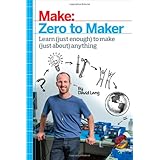
There's a basic proposition behind this movement that I'm trying to figure out.
The proposition is this: if you give people (especially kids) the right tools, they will create.
So imagine this. Imagine a space in your house with neatly organized bins full of supplies and tools for your kids to make anything they can imagine. Imagine a thirty-five dollar computer that will allow them to program and design whatever they want. Imagine a robotics tool for twenty-five dollars that will help your kid fulfill their engineering dreams.
A great dream, huh? Well, that's the plan around here. A foolish plan, most likely, but I'm going to create this space or die trying. Otherwise, I might as well send them off to school where they rarely make anything and if they do, there are pretty strict instructions on what to make, how to make it, with a rubric lurking nearby to evaluate that creativity (what there is of it). We're reorganizing the house over the next few weekends so every space is a consecrated space—dedicated to one particular thing—and my library (gasp!) is going to be converted into a maker space. There will be a sewing table, an arts table, a building table, and an engineering table (not that these things can't be used in conjunction with each other—it's just a way of organizing supplies).
This is a serious sacrifice—our family of seven lives in 2400 square feet. With five large instruments and nine pets and thousands of books (I know, I have a problem. I currently have 249 books out from the library, a personal record...) we are bursting at our mortared seams. We're going to have to put bookshelves all over the walls in the bedrooms—and nearly every place else. Sam is being very, very patient with me, but if I can create this space, and the kids can feel inspired and safe creating in it, I think it will be worth it.
But, um, I kind of stink at building, sewing, and engineering. I really don't know where to start.
Hence my search for the perfect list that will tell me all the tools I will need for my Maker Space.
Ha.
Not so easy. There are no, as yet, homeschool books on creating Maker Spaces. So I've had to scrabble things together from a bunch of different books, some for adults, some for the conventional classroom or the not so conventional classroom.
My two favorite with the most compelling ideas (including introducing me to things like Arduino and Raspberry Pi), are these:
Design, Make, Play—from the folks at the Exploratorium in San Francisco
and
Invent to Learn: Making, Tinkering and Engineering in the classroom.
There are lists in these books that have helped, but mostly these books serve as awesome inspiration for what people and children are capable of when they have the right tools and are given free reign.
Just the other day, I was telling Lucy about how Leonardo da Vinci and Michelangelo would sometimes steal cadavers so they could really explore the inside of the human body. As I was saying this, I realized that they had no textbooks. They created their own models and images. They did their own experimenting, and I guarantee they had a better understanding of the human body than I did after taking anatomy in college. Oh, I benefited from discoveries they didn't have, and I know we're way further along in understanding the human body than they were during the Renaissance, but I still guarantee, they knew more than I did (and do), and a lot of that had to do with discovering, inventing on their own.
Do you have a maker space in your home?

There's a basic proposition behind this movement that I'm trying to figure out.
The proposition is this: if you give people (especially kids) the right tools, they will create.
So imagine this. Imagine a space in your house with neatly organized bins full of supplies and tools for your kids to make anything they can imagine. Imagine a thirty-five dollar computer that will allow them to program and design whatever they want. Imagine a robotics tool for twenty-five dollars that will help your kid fulfill their engineering dreams.
A great dream, huh? Well, that's the plan around here. A foolish plan, most likely, but I'm going to create this space or die trying. Otherwise, I might as well send them off to school where they rarely make anything and if they do, there are pretty strict instructions on what to make, how to make it, with a rubric lurking nearby to evaluate that creativity (what there is of it). We're reorganizing the house over the next few weekends so every space is a consecrated space—dedicated to one particular thing—and my library (gasp!) is going to be converted into a maker space. There will be a sewing table, an arts table, a building table, and an engineering table (not that these things can't be used in conjunction with each other—it's just a way of organizing supplies).
This is a serious sacrifice—our family of seven lives in 2400 square feet. With five large instruments and nine pets and thousands of books (I know, I have a problem. I currently have 249 books out from the library, a personal record...) we are bursting at our mortared seams. We're going to have to put bookshelves all over the walls in the bedrooms—and nearly every place else. Sam is being very, very patient with me, but if I can create this space, and the kids can feel inspired and safe creating in it, I think it will be worth it.
But, um, I kind of stink at building, sewing, and engineering. I really don't know where to start.
Hence my search for the perfect list that will tell me all the tools I will need for my Maker Space.
Ha.
Not so easy. There are no, as yet, homeschool books on creating Maker Spaces. So I've had to scrabble things together from a bunch of different books, some for adults, some for the conventional classroom or the not so conventional classroom.
My two favorite with the most compelling ideas (including introducing me to things like Arduino and Raspberry Pi), are these:
Design, Make, Play—from the folks at the Exploratorium in San Francisco
and
Invent to Learn: Making, Tinkering and Engineering in the classroom.
There are lists in these books that have helped, but mostly these books serve as awesome inspiration for what people and children are capable of when they have the right tools and are given free reign.
Just the other day, I was telling Lucy about how Leonardo da Vinci and Michelangelo would sometimes steal cadavers so they could really explore the inside of the human body. As I was saying this, I realized that they had no textbooks. They created their own models and images. They did their own experimenting, and I guarantee they had a better understanding of the human body than I did after taking anatomy in college. Oh, I benefited from discoveries they didn't have, and I know we're way further along in understanding the human body than they were during the Renaissance, but I still guarantee, they knew more than I did (and do), and a lot of that had to do with discovering, inventing on their own.
Do you have a maker space in your home?
Saturday, August 16, 2014
The World's Great Wonders: How They Were Made & Why They Are Amazing
Mary said she wanted to study Cultural Geography this year. She just wanted to learn more about the world, and perhaps make a list of all the places she wanted to one day visit.
I ordered a book that seemed like a good fit (she won't be spending a ton of time on this subject), but while waiting for the book to come, I got this from the library:
Go check this book out immediately. The pictures are amazing. The information is fascinating. It will make you all want to travel, but in the meantime, you will be mesmerized by what God and man have created to make this world such an incredible place.
I ordered a book that seemed like a good fit (she won't be spending a ton of time on this subject), but while waiting for the book to come, I got this from the library:
The World's Great Wonders: How They Were Made & Why They Are Amazing
Go check this book out immediately. The pictures are amazing. The information is fascinating. It will make you all want to travel, but in the meantime, you will be mesmerized by what God and man have created to make this world such an incredible place.
Thursday, August 14, 2014
Moleskines
We take notes in our family. We take notes about our reading (about what stands out to us in any way), we take notes about science, experiments, tinkering, art, music practice, history, languages, spirituality, gardening, everything!
I now have a different notebook for each different aspect of my work: my spiritual/inspirational studies, my practical duties, the lessons I teach in church, my writing inspiration/life. Each novel I'm working on gets its own notebook as does my piano practice and even my gardening.
I know that sounds ridiculous. That means right now I have ten different notebooks I'm using for various things, but it organizes my brain. I focus better when I write things down, when I doodle, when I sketch. I'm more on top of everything when I'm aware of what that everything is.
The kids are using their music practice journals constantly and consistently now, and IT IS MAKING ALL THE DIFFERENCE! First of all, it is making their practice time go faster (even for the boys!), and it is making them extremely conscious of how their practicing is going.
I asked them (thanks to CREATIVITY: THE PERFECT CRIME) to make an imaginary house where they keep all of their "musical secrets." Those secrets are any discoveries they make about how to avoid mistakes or how to make something better. It is eliminating "luck" from their playing. So when Calvin nails every note in one of his french horn songs (no squeaking!), he no longer says, "Awesome," and moves onto something else, he asks himself how he did that. He seeks for a physical reason why that worked, and if there is something new in that answer, something he didn't think of before, he writes the secret down in his notebook and puts it in his "french horn" house, to be "stolen" later when he needs it in a different song.
I'm not describing this well, and sometime I will have to try to explain how this is working, because I think it could make the difference for every kid out there struggling to learn a musical instrument, but my actual purpose of this post is to tell you about my favorite notebooks in the universe:
Moleskines.
My kids have very few of these because they are so expensive. They use composition books for most of their note taking, but for spiritual and musical things, I've gotten them a moleskin so they can feel how special and important their notes are.
I have a moleskine for all of my different notes. I love the way it feels, I love how important my notes seem to be when they are bound so beautifully. In this world of digital, technological stuff, there is nothing more lovely than a great notebook I want to write in. If you have trouble finding the desire to take notes about anything in your life, get one of these books. I promise you, just the cost will help you be more inspired!!!
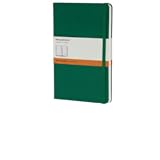
I now have a different notebook for each different aspect of my work: my spiritual/inspirational studies, my practical duties, the lessons I teach in church, my writing inspiration/life. Each novel I'm working on gets its own notebook as does my piano practice and even my gardening.
I know that sounds ridiculous. That means right now I have ten different notebooks I'm using for various things, but it organizes my brain. I focus better when I write things down, when I doodle, when I sketch. I'm more on top of everything when I'm aware of what that everything is.
The kids are using their music practice journals constantly and consistently now, and IT IS MAKING ALL THE DIFFERENCE! First of all, it is making their practice time go faster (even for the boys!), and it is making them extremely conscious of how their practicing is going.
I asked them (thanks to CREATIVITY: THE PERFECT CRIME) to make an imaginary house where they keep all of their "musical secrets." Those secrets are any discoveries they make about how to avoid mistakes or how to make something better. It is eliminating "luck" from their playing. So when Calvin nails every note in one of his french horn songs (no squeaking!), he no longer says, "Awesome," and moves onto something else, he asks himself how he did that. He seeks for a physical reason why that worked, and if there is something new in that answer, something he didn't think of before, he writes the secret down in his notebook and puts it in his "french horn" house, to be "stolen" later when he needs it in a different song.
I'm not describing this well, and sometime I will have to try to explain how this is working, because I think it could make the difference for every kid out there struggling to learn a musical instrument, but my actual purpose of this post is to tell you about my favorite notebooks in the universe:
Moleskines.
My kids have very few of these because they are so expensive. They use composition books for most of their note taking, but for spiritual and musical things, I've gotten them a moleskin so they can feel how special and important their notes are.
I have a moleskine for all of my different notes. I love the way it feels, I love how important my notes seem to be when they are bound so beautifully. In this world of digital, technological stuff, there is nothing more lovely than a great notebook I want to write in. If you have trouble finding the desire to take notes about anything in your life, get one of these books. I promise you, just the cost will help you be more inspired!!!

Wednesday, August 13, 2014
The Most Amazing Book I Have Read All Summer...
CREATIVITY: THE PERFECT CRIME by Philippe Petit
Do you know the brilliant picture book below and the man who walked between the WTC towers on a high rope?
The Man Who Walked Between the Towers
Philippe Petit is that man, and the book at the top, CREATIVITY: THE PERFECT CRIME, is a book written by Petit on his creative process. Philippe Petit is an aerialist, a juggler, a magician, a writer, an artist, and a carpenter. He believes deeply and passionately about art and creativity and how to be creative in any endeavor, and he's written a manual for those of us wanting to live as he does.
This is not a book with rules. This is a book describing the fastidious and yet incredibly free and beautiful way that he works.
I cannot tell you how much this book is changing my life and the life of my kids. We talk about this book all the time. We talk about allowing for chaos, making lists, taking copious notes as we learn and grow. It's about getting deeply involved in our work, it's about working with our hearts and our minds forged together, it's about passion, it's about dedication, it's about the best way to live life. The kids are using it in their studies and in their music practicing. I'm asking them to use it when they "tinker." I'm asking them to think this way as they study their scriptures. I'm asking them to take notes and develop a process for all of their learning.
I'm trying to incorporate Petit's ideas into every aspect of my life, even my spiritual life. I want to be thoughtful and purposeful in everything I do. I want to take the limited resource of time and turn it into a tool that allows me to make the most of this existence.
Petit is French, and the book is written in an unusual style, but it is worth any struggle you might have putting his words together into something that makes sense for you.
It is so, so, so worth it.
And don't forget, while you read, to take copious notes!!! You'll be glad you did.
Do you know the brilliant picture book below and the man who walked between the WTC towers on a high rope?
The Man Who Walked Between the Towers
Philippe Petit is that man, and the book at the top, CREATIVITY: THE PERFECT CRIME, is a book written by Petit on his creative process. Philippe Petit is an aerialist, a juggler, a magician, a writer, an artist, and a carpenter. He believes deeply and passionately about art and creativity and how to be creative in any endeavor, and he's written a manual for those of us wanting to live as he does.
This is not a book with rules. This is a book describing the fastidious and yet incredibly free and beautiful way that he works.
I cannot tell you how much this book is changing my life and the life of my kids. We talk about this book all the time. We talk about allowing for chaos, making lists, taking copious notes as we learn and grow. It's about getting deeply involved in our work, it's about working with our hearts and our minds forged together, it's about passion, it's about dedication, it's about the best way to live life. The kids are using it in their studies and in their music practicing. I'm asking them to use it when they "tinker." I'm asking them to think this way as they study their scriptures. I'm asking them to take notes and develop a process for all of their learning.
I'm trying to incorporate Petit's ideas into every aspect of my life, even my spiritual life. I want to be thoughtful and purposeful in everything I do. I want to take the limited resource of time and turn it into a tool that allows me to make the most of this existence.
Petit is French, and the book is written in an unusual style, but it is worth any struggle you might have putting his words together into something that makes sense for you.
It is so, so, so worth it.
And don't forget, while you read, to take copious notes!!! You'll be glad you did.
Tuesday, August 12, 2014
Being creative with music
My oldest daughter, Mary, has spent the summer at Meadowmount, an elite summer music camp for aspiring professional string players.
It has certainly been an experience, full of both good and bad. She's learned so much, she's grown so much, but maybe not in the ways we thought she would.
Her playing has improved. There was no way it couldn't—she had to practice five hours a day plus participate in Master Classes and two chamber music groups. She went to fabulous concerts with amazing players—truly the rising generation of professional soloists.
But she's had to ask herself a lot of hard questions about what music means to her and what kind of a musician she aims to be.
I've had to ask myself some hard questions too, the most important of which is this: Is it possible to be creative in music?
Obviously, if you are composing, you are being creative. That's a given, but what about when you are in your room, practicing the notes someone else put together? Not only did the composer put the notes together, but they often put in dynamics and other notations meant to dictate exactly how the music is played beyond the intonation and rhythm. On top of that, you have a teacher who listens to your playing and tells you how they think it is supposed to sound as well.
If you think about it in those terms, playing music isn't very creative at all. It's simply trying to do exactly what someone else has already done and wants you to mimic.
This is an over-simplification, but even in its over-simplified state, this description is telling. The chamber music program at Meadowmount (the summer camp Itzhak Perlman and Yo-Yo Ma went to in their youth) was very lackluster. The kids were put into groups, given a song to play, told to rehearse at least twice a week on their own, and then they met with their coaches once a week for a coaching.
Mary was stunned to find that the kids in her two groups—truly some amazingly gifted kids that are at the top of the game in their respective locations—had no desire to rehearse. Mary almost always had to set rehearsals up, and as often as they were set up, they would be canceled by someone in the group who felt like they had more important things to do (like ping-pong).
This was a mystery she and I tried to solve. These kids had no parents at the camp to force them to rehearse. That had to be a part of it. Also, very few people at Meadowmount actually get to perform at the concerts, and other than a Masterclass here and there, the kids would never be performing these pieces for any sizable audience, so that had to be a part of it too. But their lack of motivation also had to come from something missing inside of them. They were not motivated. Mary truly wanted to rehearse. She wanted to get together with these kids and play some amazing Beethoven and Mendelssohn, but they did not share that same desire.
Kids need autonomy. They need to believe that they can be creative and do more than just play notes. They need to be free to interpret the music, and their interpretations, even if they are different than their much more experienced teachers, can be good.
The key is to actually believe that the kids are taking the time to interpret the music. It reminds me of what my mom said when I told her the only way for the teachers at her school to improve their students' writing was to give them written critiques of their work. She said, "But kids don't read written critiques. They won't even look at them."
Is this the kind of faith we have in children? That they will not try on their own if we give them some freedom—some space to be creative. That their efforts will be lackluster and therefore we have to do the work for them. How many times do our kids go to an activity where they are told they get to make a craft, only to receive step-by-step instructions for how to perform said craft. The only creativity that occurs is the decorating. Where you put a sticker or what color to paint something doesn't give kids much room to be creative.
Why don't more music teachers work on inspiring their students to be creative within the boundaries the music gives them? Why don't more music teachers step back from themselves and recognize that their way of playing something may not be the only way and their students won't learn much if they are told exactly what to do and are given good marks only if that way is followed.
My goal right now is to empower my kids in their music along with everything else. It doesn't matter so much what our kids do with the the music they play. It matters a whole lot more that they are actively, energetically doing something with it.
It has certainly been an experience, full of both good and bad. She's learned so much, she's grown so much, but maybe not in the ways we thought she would.
Her playing has improved. There was no way it couldn't—she had to practice five hours a day plus participate in Master Classes and two chamber music groups. She went to fabulous concerts with amazing players—truly the rising generation of professional soloists.
But she's had to ask herself a lot of hard questions about what music means to her and what kind of a musician she aims to be.
I've had to ask myself some hard questions too, the most important of which is this: Is it possible to be creative in music?
Obviously, if you are composing, you are being creative. That's a given, but what about when you are in your room, practicing the notes someone else put together? Not only did the composer put the notes together, but they often put in dynamics and other notations meant to dictate exactly how the music is played beyond the intonation and rhythm. On top of that, you have a teacher who listens to your playing and tells you how they think it is supposed to sound as well.
If you think about it in those terms, playing music isn't very creative at all. It's simply trying to do exactly what someone else has already done and wants you to mimic.
This is an over-simplification, but even in its over-simplified state, this description is telling. The chamber music program at Meadowmount (the summer camp Itzhak Perlman and Yo-Yo Ma went to in their youth) was very lackluster. The kids were put into groups, given a song to play, told to rehearse at least twice a week on their own, and then they met with their coaches once a week for a coaching.
Mary was stunned to find that the kids in her two groups—truly some amazingly gifted kids that are at the top of the game in their respective locations—had no desire to rehearse. Mary almost always had to set rehearsals up, and as often as they were set up, they would be canceled by someone in the group who felt like they had more important things to do (like ping-pong).
This was a mystery she and I tried to solve. These kids had no parents at the camp to force them to rehearse. That had to be a part of it. Also, very few people at Meadowmount actually get to perform at the concerts, and other than a Masterclass here and there, the kids would never be performing these pieces for any sizable audience, so that had to be a part of it too. But their lack of motivation also had to come from something missing inside of them. They were not motivated. Mary truly wanted to rehearse. She wanted to get together with these kids and play some amazing Beethoven and Mendelssohn, but they did not share that same desire.
Kids need autonomy. They need to believe that they can be creative and do more than just play notes. They need to be free to interpret the music, and their interpretations, even if they are different than their much more experienced teachers, can be good.
The key is to actually believe that the kids are taking the time to interpret the music. It reminds me of what my mom said when I told her the only way for the teachers at her school to improve their students' writing was to give them written critiques of their work. She said, "But kids don't read written critiques. They won't even look at them."
Is this the kind of faith we have in children? That they will not try on their own if we give them some freedom—some space to be creative. That their efforts will be lackluster and therefore we have to do the work for them. How many times do our kids go to an activity where they are told they get to make a craft, only to receive step-by-step instructions for how to perform said craft. The only creativity that occurs is the decorating. Where you put a sticker or what color to paint something doesn't give kids much room to be creative.
Why don't more music teachers work on inspiring their students to be creative within the boundaries the music gives them? Why don't more music teachers step back from themselves and recognize that their way of playing something may not be the only way and their students won't learn much if they are told exactly what to do and are given good marks only if that way is followed.
My goal right now is to empower my kids in their music along with everything else. It doesn't matter so much what our kids do with the the music they play. It matters a whole lot more that they are actively, energetically doing something with it.
Thursday, August 7, 2014
Homeschooling the Rigid and Creating the Passionate
So we're homeschooling right now in order to determine if it will work before school starts. (This will also give us extra vacation time during the year!)
Some of my kids like my new brand of homeschooling.
Some not so much.
I believe in structure and hard work.
I believe in creativity and following your passions.
These two things seem to conflict in most school settings, so I've been trying to create an atmosphere and a system where these things go together.
When we first started talking about homeschooling, I told the kids I wanted them to do four Cs every day:
Create
Comprehend
Communicate
Calculate (Calculate on top of their one hour of a math program every day)
I suggested they find something they want to study and go crazy on that topic until they feel like they've squeezed all they can from it. We decided to call this their "project." On top of their music practicing and their one hour of math, they work for four hours on their project. At the end of the day, we have an interview where they demonstrate what they've learned and share what they've done.
Lucy picked WW II. Calvin picked Chimpanzees. Shaemus picked eyeglasses (really...), and Flannery picked trees.
Calvin read books about chimpanzees all week. He drew me a poster diagramming how they are related to other apes, what they eat, what plants are in their environment, etc... He made a miniature chimpanzee habitat. He made chimpanzees out of clay, and he read WHITE FANG. (If any of you know any fantastic novels out there about chimpanzees, please pass them on...) He learned and he grew and I felt like all of this was coming from someplace deep inside of him—a real, insatiable, curious part of him.
Success!
Lucy did WW II. She read novels. She read articles. She read books. She took pages and pages of notes. She made a water color about Japan's role in the war. She wrote me a very good essay about how Hitler was able to manipulate so many people and commit the atrocious crimes he did. But there was something stifled in her work, something desperate. Something very "traditional schoolish." I didn't see her really breaking out of her comfort zone to try new things. I didn't see her thinking they way I wanted her to be thinking. She worked hard, but almost too hard, and not with the joy I wanted to see.
Not a failure, but not really a success.
Flannery spent a great deal of the week telling me she read books that she did not read. She also did a great job with her math, with reading to me, with art (oh, how she loves to draw and paint), and with her ABC book she is creating about trees. But the lying thing is going to be tough to navigate.
Hmmmm.
Shaemus. Shaemus, Shaemus, Shaemus. Shaemus is at a hard age—I think eight is a hard. He wants to be good, but he is incredibly insecure. He wants to be told exactly what to do so he can do that exact thing and do it just right. He is usually my builder, my creator. Did he build anything during the week? First of all, after studying the eyeball for a day, he decided to switch to WW I. Then, after some research, he built a German submarine that partially submerged with LEGOs. That was good, but I'm not sure how creative it actually was. He read a huge variety of books about WW I, but his mind wandered. A lot. He took notes, but they were just copying down facts he read in different places. He was bored, often frustrated. Not excited about anything.
Not a success. I don't think he's going to be behind if this is how school looks for him the entire year. He's still doing more math, reading, and writing and of a much better quality than he would in school, but this is not the passion I imagined inciting in him, and I know this kid. There is a lot of passion inside of him. If I can find it, if I can tap into it, he will be incredible. Unstoppable in anything he sets his mind to.
I read the other day in an interview with the man who basically master-minded the iPhone, that he didn't think it mattered so much what you were passionate about, so long as you were capable of passion.
With that in mind, I'm re-envisioning their four hours of project time (Flannery's is just two hours long). They can study whatever they want during that time, and it does not have to be on the same topic. They can switch around as their passions drive them, but every day they need to show me real, tangible evidence that they have Created (discovered a problem and found different ways to solve it), Calculated (above and beyond their regular math time), Comprehended (read something at a high level and worked to understand it), and Communicated (they have to now write every day, and it cannot be taking notes—though the format it takes (newspaper article, essay, poster, play, short story, novel, etc...)) can vary. I've also decided I want them to find some way to Collaborate with someone else on their work throughout the day.
I have no idea how this will turn out. I have no idea if I will be able to get this rolling as I envisioned. Independence in their schooling is hugely important to me, both for them and for myself. Maybe Shaemus will never be able to be independent. Maybe he will always need rigid structure to thrive. Except is it thriving if that's the only way he can learn?
Is every child capable of living a confident, innovative, creative life full of passion and learning?
That's what I aim to find out!!!
Some of my kids like my new brand of homeschooling.
Some not so much.
I believe in structure and hard work.
I believe in creativity and following your passions.
These two things seem to conflict in most school settings, so I've been trying to create an atmosphere and a system where these things go together.
When we first started talking about homeschooling, I told the kids I wanted them to do four Cs every day:
Create
Comprehend
Communicate
Calculate (Calculate on top of their one hour of a math program every day)
I suggested they find something they want to study and go crazy on that topic until they feel like they've squeezed all they can from it. We decided to call this their "project." On top of their music practicing and their one hour of math, they work for four hours on their project. At the end of the day, we have an interview where they demonstrate what they've learned and share what they've done.
Lucy picked WW II. Calvin picked Chimpanzees. Shaemus picked eyeglasses (really...), and Flannery picked trees.
Calvin read books about chimpanzees all week. He drew me a poster diagramming how they are related to other apes, what they eat, what plants are in their environment, etc... He made a miniature chimpanzee habitat. He made chimpanzees out of clay, and he read WHITE FANG. (If any of you know any fantastic novels out there about chimpanzees, please pass them on...) He learned and he grew and I felt like all of this was coming from someplace deep inside of him—a real, insatiable, curious part of him.
Success!
Lucy did WW II. She read novels. She read articles. She read books. She took pages and pages of notes. She made a water color about Japan's role in the war. She wrote me a very good essay about how Hitler was able to manipulate so many people and commit the atrocious crimes he did. But there was something stifled in her work, something desperate. Something very "traditional schoolish." I didn't see her really breaking out of her comfort zone to try new things. I didn't see her thinking they way I wanted her to be thinking. She worked hard, but almost too hard, and not with the joy I wanted to see.
Not a failure, but not really a success.
Flannery spent a great deal of the week telling me she read books that she did not read. She also did a great job with her math, with reading to me, with art (oh, how she loves to draw and paint), and with her ABC book she is creating about trees. But the lying thing is going to be tough to navigate.
Hmmmm.
Shaemus. Shaemus, Shaemus, Shaemus. Shaemus is at a hard age—I think eight is a hard. He wants to be good, but he is incredibly insecure. He wants to be told exactly what to do so he can do that exact thing and do it just right. He is usually my builder, my creator. Did he build anything during the week? First of all, after studying the eyeball for a day, he decided to switch to WW I. Then, after some research, he built a German submarine that partially submerged with LEGOs. That was good, but I'm not sure how creative it actually was. He read a huge variety of books about WW I, but his mind wandered. A lot. He took notes, but they were just copying down facts he read in different places. He was bored, often frustrated. Not excited about anything.
Not a success. I don't think he's going to be behind if this is how school looks for him the entire year. He's still doing more math, reading, and writing and of a much better quality than he would in school, but this is not the passion I imagined inciting in him, and I know this kid. There is a lot of passion inside of him. If I can find it, if I can tap into it, he will be incredible. Unstoppable in anything he sets his mind to.
I read the other day in an interview with the man who basically master-minded the iPhone, that he didn't think it mattered so much what you were passionate about, so long as you were capable of passion.
With that in mind, I'm re-envisioning their four hours of project time (Flannery's is just two hours long). They can study whatever they want during that time, and it does not have to be on the same topic. They can switch around as their passions drive them, but every day they need to show me real, tangible evidence that they have Created (discovered a problem and found different ways to solve it), Calculated (above and beyond their regular math time), Comprehended (read something at a high level and worked to understand it), and Communicated (they have to now write every day, and it cannot be taking notes—though the format it takes (newspaper article, essay, poster, play, short story, novel, etc...)) can vary. I've also decided I want them to find some way to Collaborate with someone else on their work throughout the day.
I have no idea how this will turn out. I have no idea if I will be able to get this rolling as I envisioned. Independence in their schooling is hugely important to me, both for them and for myself. Maybe Shaemus will never be able to be independent. Maybe he will always need rigid structure to thrive. Except is it thriving if that's the only way he can learn?
Is every child capable of living a confident, innovative, creative life full of passion and learning?
That's what I aim to find out!!!
Thursday, July 31, 2014
Homeschooling
We're taking the plunge this year and homeschooling everybody.
This is not an easy decision. I say "is" rather than "was" because it is a decision I'm going to have to make every single day, and it is not one we make lightly. It may change in the future, because it might just be too hard, but for now, this is the plan.
I've thought a lot lately about what I want for my kids while they are in school and learning how to become happy, functioning adults.
And it boils down to a few basic things:
I want them to be able to think deeply.
I want them to be able to create without fear of failure (not that they can't fail, but that they don't fear failure).
I want them to see the world as a place of opportunity, and that they have the opportunity to make a difference in that world.
The schools in our area just aren't cutting it. My fourth-grader (who likes school just fine) finished school last year and collapsed. I don't mean collapsed from weariness—school's not all that hard for him—but collapsed mentally, collapsed creatively. Calvin's always been one of my most creative kids, and the only thing he could do for weeks was wander the house reading random books that fell into his path. He could hardly pick up some LEGOs and build anything, let alone write, play, draw, imagine, create.
Then we went on vacation and he had basically no structured time, no rules, no technology, nothing but his brain, his hands, and whatever materials lay around. He went nuts, building, imagining, creating. Now we're back home, and he's back to his old self. He and his brother created a newspaper yesterday just for fun. One of the columns said:
Home News!!! A package just arrived from Baba (my mom). What's inside? Stay tuned for our next edition.
This may seem like common fare to you, but this is precisely what he wasn't doing all year long and after school got out. And now that he's out of an environment where there are only right or wrong answers, where you can only collaborate with explicit permission, where you can't even do a cartwheel on the playground because it might be dangerous, he's creating again.
I've had to ask myself, do I care if my children can answer four multiple-choice questions correctly after reading a random passage about butterflies they will never look at again?
No.
Do I want them to be able to innovate? Do I want them to think outside the box? Do I want them to learn how to comprehend, communicate, create, and calculate? Do I want them to be able to write????
Yes.
I've read several books lately that have helped me down this road. I wanted to share them. They will help you parent innovators regardless of your choices for school.
(CREATING INNOVATORS by Tony Wagner)
THE ART OF TINKERING
DESIGN, MAKE, PLAY: GROWING THE NEXT GENERATION OF STEM INNOVATORS
This is not an easy decision. I say "is" rather than "was" because it is a decision I'm going to have to make every single day, and it is not one we make lightly. It may change in the future, because it might just be too hard, but for now, this is the plan.
I've thought a lot lately about what I want for my kids while they are in school and learning how to become happy, functioning adults.
And it boils down to a few basic things:
I want them to be able to think deeply.
I want them to be able to create without fear of failure (not that they can't fail, but that they don't fear failure).
I want them to see the world as a place of opportunity, and that they have the opportunity to make a difference in that world.
The schools in our area just aren't cutting it. My fourth-grader (who likes school just fine) finished school last year and collapsed. I don't mean collapsed from weariness—school's not all that hard for him—but collapsed mentally, collapsed creatively. Calvin's always been one of my most creative kids, and the only thing he could do for weeks was wander the house reading random books that fell into his path. He could hardly pick up some LEGOs and build anything, let alone write, play, draw, imagine, create.
Then we went on vacation and he had basically no structured time, no rules, no technology, nothing but his brain, his hands, and whatever materials lay around. He went nuts, building, imagining, creating. Now we're back home, and he's back to his old self. He and his brother created a newspaper yesterday just for fun. One of the columns said:
Home News!!! A package just arrived from Baba (my mom). What's inside? Stay tuned for our next edition.
This may seem like common fare to you, but this is precisely what he wasn't doing all year long and after school got out. And now that he's out of an environment where there are only right or wrong answers, where you can only collaborate with explicit permission, where you can't even do a cartwheel on the playground because it might be dangerous, he's creating again.
I've had to ask myself, do I care if my children can answer four multiple-choice questions correctly after reading a random passage about butterflies they will never look at again?
No.
Do I want them to be able to innovate? Do I want them to think outside the box? Do I want them to learn how to comprehend, communicate, create, and calculate? Do I want them to be able to write????
Yes.
I've read several books lately that have helped me down this road. I wanted to share them. They will help you parent innovators regardless of your choices for school.
(CREATING INNOVATORS by Tony Wagner)
THE ART OF TINKERING
DESIGN, MAKE, PLAY: GROWING THE NEXT GENERATION OF STEM INNOVATORS
Subscribe to:
Posts (Atom)


